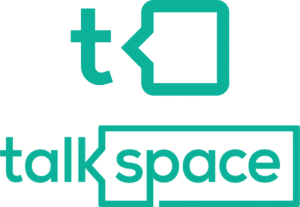Internet Addiction
What Is An Internet Addiction?
Internet and computer use are ingrained in contemporary society and have changed the way we live our lives more than any other technological medium yet. Despite this, relatively little is known about the effects of internet addiction on psychological functioning, mental health, and general well-being. Just last year, data from the Pew Research Center showed that 77% of Americans connect to the internet on a daily basis. While many believe that surfing the web or binging cat videos on YouTube is a relatively harmless act, there are some people who spend so much of their time using a computer or the internet that it has begun to interfere with their daily lives. When an action or desire becomes a hindrance and takes precedence over the most important aspects of one’s life, like relationships, work, and school, it can become classified as an addiction.
Internet addiction is yet to be listed in the latest edition of the Diagnostic and Statistical Manual of Mental Disorders (commonly referred to as the DSM-5). However, a 2-year study funded by the National Institutes of Health may change that. Begun in August of 2017, the study could deliver sufficient evidence that problems stemming from excessive internet use deserve serious attention from US mental health and psychiatric communities. Professionals that do recognize internet addiction tend to classify it as either an obsessive-compulsive disorder or an impulse control disorder to aid treatment. Internet addiction is also called compulsive computer use, pathological internet use, and internet dependence.
Try Online Therapy

Get professional help from an addiction and mental health counselor from BetterHelp by phone, video, or live-chat.
Take the Quiz. Get Matched. Begin Therapy.

Online therapy can help you with long term addiction support. Connect with a therapist from Talkspace anytime, anywhere.
Get matched with a therapist now.
Paid Advertising. We may receive advertising fees if you follow links to promoted online therapy websites.
5 Types Of Internet Addiction
Internet addiction is a broad term that covers a range of behaviors and impulse-control problems involving internet, personal computer, and mobile technology. While there is yet no officially accepted criteria to diagnose an internet addiction, researchers have identified 5 subcategories of specific types of computer and internet addictions.
Cybersex Addiction
A cybersex addiction is one of the more self-explanatory internet addictions. It involves online pornography, adult websites, sexual fantasy/adult chat rooms, and XXX webcam services. An obsession with any of these services can be harmful to one’s ability to form real-world sexual, romantic, or intimate relationships. Treatment options are available for those with cybersex addictions, typically in the form of intervention followed by ongoing inpatient or outpatient therapy.
Net Compulsions
Net compulsions concern interactive activities online that can be extremely harmful, such as online gambling, trading stocks, online auctions (such as eBay), and compulsive online shopping. These habits can have a detrimental impact on one’s financial stability and disrupt job-related duties. Spending or losing excessive amounts of money can also cause stress in one’s relationships. With instant and easy access to online casinos and stores, it is easy for those who are already susceptible to a gambling or spending addiction to get hooked online.
Cyber (Online) Relationship Addiction
Cyber or online relationship addicts are deeply involved with finding and maintaining relationships online, often forgetting and neglecting real-life family and friends. Typically online relationships are formed in chat rooms or different social networking sites but can occur anywhere one can interact with people online. Often people who pursue online relationships do so while concealing their real identity and appearance; this modern phenomena led to the creation of the term “catfish.”
After being consumed by an online social life and persona, a person may be left with limited social skills and unrealistic expectations concerning in-person interactions. Many times this leads to an inability to make real-world connections, in turn making the individual more dependent on their cyber relationships. Counseling or therapy is typically required to treat this addiction and ensure lasting behavioral changes.
Compulsive Information Seeking
The internet provides users with a wealth of data and knowledge. For some, the opportunity to find information so easily has turned into an uncontrollable urge to gather and organize data. In some cases information-seeking is a manifestation of pre-existing, obsessive-compulsive tendencies. Compulsive information-seeking can also reduce work productivity and potentially lead to job termination. Depending on the severity of the addiction, treatment options can range from different therapy modalities — which target changing compulsive behavior and developing coping strategies — to medication.
Computer Or Gaming Addiction
Computer addiction, sometimes referred to as computer gaming addiction, involves online and offline activities that can be done with a computer. As computers became more widely available, games such as Solitaire, Tetris, and Minesweeper were programed into their software. Researchers quickly found that obsessive computer game playing was becoming a problem in certain settings. Office employees would spend excessive amounts of time playing these games, causing a notable decrease in productivity. Not only are these classic games still available today but so are thousands of new ones, and the condition of computer gaming addiction is as prevalent and harmful as ever.
Looking for a place to start?
Join the thousands of people that have called a treatment provider for rehab information.
Free and confidential
Available 24/7
Access to professional treatment
Common Questions About Rehab
Signs And Symptoms
In 1998, Dr. Kimberly Young developed “The Internet Addiction Test.” It includes a 20-item questionnaire that is administered to the client by a proctor. These items include questions like:
- How often do you find that you stay online longer than you intended?
- How often do others in your life complain to you about the amount of time you spend online?
- How often do you find yourself anticipating when you will go online again?
Clients can answer with one of these 6 responses: Not Applicable, Rarely, Occasionally, Frequently, Often, and Always. Each answer has a numerical value assigned to it. At the end of the test all the answer’s values are added together, and a score is calculated and used to determine the presence or severity of an internet addiction.
Other internet addiction tests have also gained popularity. In 2005, Dr. Keith W. Beard published an article in which he proposed 8 characteristics that describe having an internet use disorder. If 5 or more of the traits describe the subject, they would be diagnosed with an internet addiction. The characteristics are:
- Is preoccupied with the internet (thinks about previous online activity or anticipates next online session).
- Needs to use the internet with increasing amounts of time in order to achieve satisfaction.
- Has made unsuccessful efforts to control, cut back, or stop internet use.
- Has stayed online longer than originally intended.
- Is restless, moody, depressed, or irritable when attempting to cut down or stop internet use.
- Has jeopardized or risked the loss of a significant relationship, job, or educational or career opportunity because of the internet.
- Has lied to family members, therapists, or others to conceal the extent of involvement with the internet.
- Uses the internet as a way of escaping from problems or of relieving a dysphoric mood (e.g. feelings of helplessness, guilt, anxiety, depression).
Effects Of An Internet Addiction
An internet addiction can have many harmful effects on a person, both physically and emotionally. Body aches, Carpal Tunnel Syndrome, insomnia, vision problems, and weight gain/loss are just some of the physical problems one may suffer as a result of an internet addiction. Emotional effects may include depression, dishonesty, anxiety, social isolation, aggression, and mood swings.
Internet Addictions And Mental Illness
A 2016 research study found that those who were deemed as having an internet addiction (using Dr. Young’s Internet Addiction Test) had significantly more trouble dealing with their day-to-day activities. This included life at home, work/school-related duties, and their ability to socialize in the real world. Individuals with these types of addictions also exhibited significantly higher amounts of depression and anxiety symptoms.
There is debate over whether a computer, cell phone, or online addiction is the cause or consequence of such mental health issues. ADHD symptoms, such as difficulty planning ahead, poor time management, and higher-than-average levels of attentional impulsivity, are also common among those with an internet addiction. Additionally, those with an addiction are more likely to have a co-occurring disorder that requires special care and treatment.
Treating An Internet Addiction
There is no one specific treatment that should be used to address an internet addiction. Depending on the severity of the addiction and the behaviors of the individual, different types of treatment would be effective. If someone you know is suffering from excessive internet abuse, the first step is to plan an intervention or to express your concerns with their behaviors.
Check if my insurance covers rehab
Addiction Center is not affiliated with any insurance.
Therapy is generally incorporated into the treatment of addiction along with any co-occurring disorders that may be present such as anxiety, depression, and/or obsessive-compulsive disorder. In some cases, medication may be used to manage symptoms of these underlying mental illnesses or to control intrusive thoughts about going online if other treatment options were not effective.
Internet addiction does not need to control the life of yourself or of someone you love. Consider doing more research to determine what the right way forward may be, but also be mindful of not waiting too long before taking action to fix the problem — time is a valuable thing, and perhaps not best sacrificed overmuch so to the technological tools that are meant to serve us (and not the other way around). Click here to learn about what online therapy options are available for you.
Try Online Therapy

Get professional help from an addiction and mental health counselor from BetterHelp by phone, video, or live-chat.
Take the Quiz. Get Matched. Begin Therapy.

Online therapy can help you with long term addiction support. Connect with a therapist from Talkspace anytime, anywhere.
Get matched with a therapist now.

Begin making positive changes with Online-Therapy.com. Quality online therapy, from the comfort of home.
Answer a few questions to get started.
Paid Advertising. We may receive advertising fees if you follow links to promoted online therapy websites.
Published:
Author
Natalie Hoeg

-
Natalie is currently studying political science, philosophy, and sociology at Stetson University and is also a member of the university's Honors Program. Looking to pursue a career in writing and research, she aspires to go on to earn her Ph.D. so that she can educate fellow inquisitive spirits with a passion for learning. When provided with the opportunity to write for Recovery Worldwide, Natalie has found a passion in helping educate the public about substance abuse and help those battling addiction.
- More from Natalie Hoeg
Reviewed by Certified Addiction Professional:
Theresa Parisi

Theresa Parisi is a Certified Addiction Professional (CAP), Certified Behavioral Health Case Manager (CBHCM), and International Certified Alcohol and Drug Counselor (ICADC) with over 12 years of experience in the addiction treatment field.
- More from Theresa Parisi
Reviewed by Doctor of Addiction Medicine:
Dr. Ashish Bhatt, MD

-
Addiction Center’s Medical Content Director, Dr. Ashish Bhatt, MD, MRO is an accomplished physician, addiction medicine specialist, and psychiatrist with over 20 years of medical and administrative leadership.
- More from Dr. Ashish Bhatt
Sources